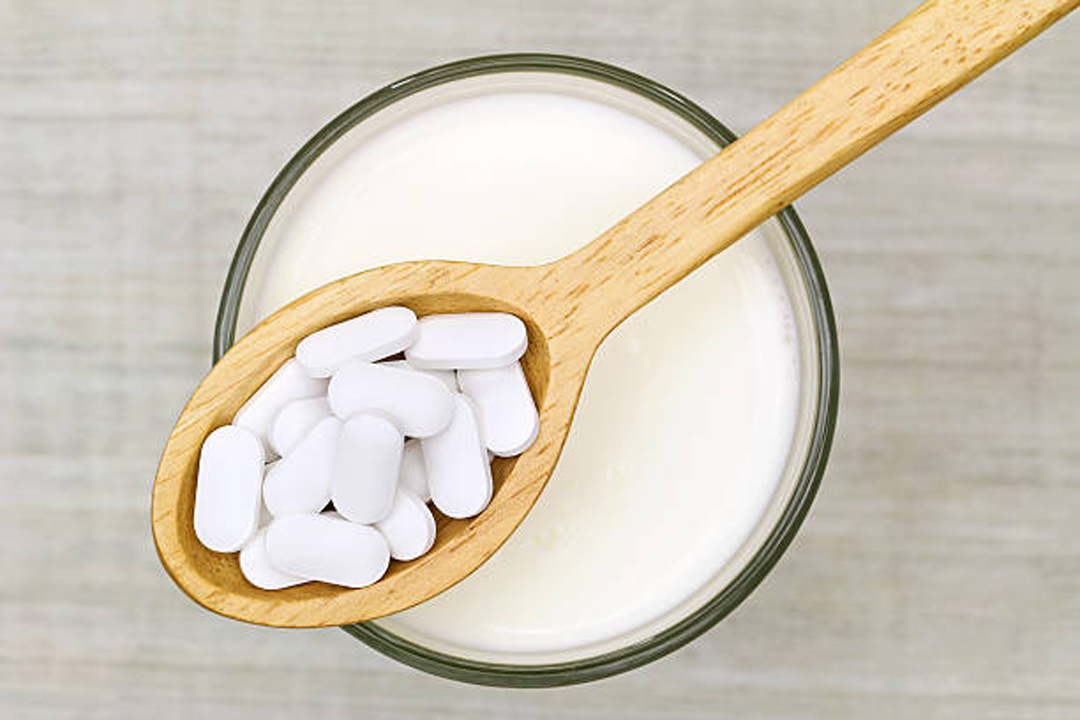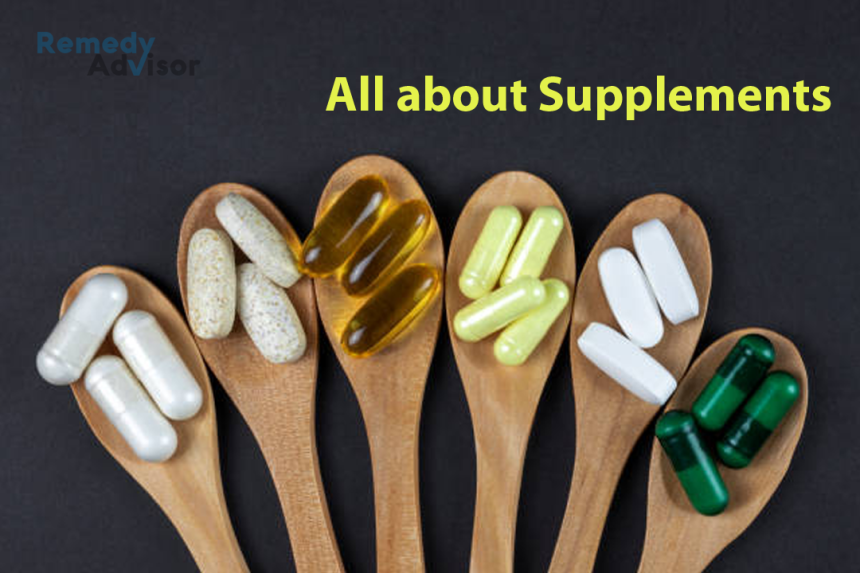A lot of Americans take vitamin and mineral supplements every day, but if you eat well, you probably don’t need them. On the other hand, taking supplements can’t make up for a bad diet, like one high in fat or low in fiber.
But sometimes, taking vitamin and mineral supplements can help a healthy diet work even better. Even if you eat a well-balanced diet, you might not be able to get as much of some nutrients as experts now recommend. Also, supplements can be helpful for some groups of people who have special needs. These groups include people who are pregnant, people who take aspirin often (like people with arthritis), heavy drinkers (since drinking too much alcohol depletes B vitamins and vitamin C), and smokers (who tend to use up vitamin C more quickly than non-smokers). If you belong to one of these groups, talk to your doctor about taking supplements (though smokers and heavy drinkers would be better off quitting their habits).
People who are 60 or older might want to take a simple, inexpensive multivitamin supplement. As people get older, they may have trouble chewing or swallowing, or they may lose their appetite because their sense of taste and smell is getting worse. Also, as people get older, it can be hard for their bodies to absorb and use certain nutrients. Here are some ideas for how to use supplements.
Consider two antioxidant supplements.
People often take 250 to 500 milligrams of vitamin C and 200 to 400 international units (IU) of vitamin E as antioxidant supplements. Scientists have found that these vitamins are good at getting rid of free radicals, which are unstable molecules that can damage cells and lead to long-term diseases. Even though scientists are still trying to figure out how antioxidants work, there have been a lot of studies on how vitamins C and E help the body.
Based on what we know now, the Editorial Board of the UC Berkeley Wellness Letter says that taking vitamin C and E supplements at the recommended levels doesn’t pose much of a risk and may have major health benefits. These benefits include protection against heart disease, certain types of cancer, cataracts, and maybe even other health problems. But it’s important to note that not every board member may agree with this conclusion.
If you eat a lot of citrus fruits, vegetables, and juices (like orange juice, which has about 100 milligrams per cup), you may already be getting enough vitamin C and may not need to take extra supplements. If you do decide to take a supplement, you don’t need to pay more for “natural” vitamin C because both natural and synthetic forms work just as well.
On the other hand, it can be hard to get enough vitamin E from food alone, and most foods that are high in vitamin E are also high in fat. There are both natural and man-made forms of vitamin E supplements, and both are good for you. Even though the synthetic form is the cheapest and easiest to find, most studies that have shown it might be good for your health have used the natural form. If you can, though, it’s best to buy vitamin E in its natural form, preferably from a brand that says “mixed tocopherols” on the list of ingredients.
You may need to supplement your calcium intake.

Most of the time, nutritionists tell people that food is the best way to get their calcium. But many women, especially older women who don’t eat dairy products, don’t get enough calcium from what they eat. This is true for older men as well. In this case, it is better to take a calcium supplement than to not get any calcium at all. Even in older women, research has shown that taking supplements can help stop bone loss.
Premenopausal women should be sure to get enough folacin.
The U.S. Public Health Service says that all women who can get pregnant should take 400 micrograms of folacin every day. Folacin, which is also called folate or folic acid when it is added to supplements or foods, can help prevent spina bifida and other birth defects. It may also help protect against cancers like lung, colorectal, and cervical, especially in women who are at high risk. Folacin and other B vitamins like B6 and B12 can also help protect against heart disease.
Folacin may already be in your diet if you eat leafy greens, beans, whole grains, and breakfast cereals with added vitamins. Folic acid is added to bread, pasta, grits, cornmeal, and white rice. Folic acid is easier for the body to absorb than folacin, which is naturally found in food. But if you can get pregnant but aren’t sure if you’re getting at least 400 micrograms of folacin every day from fortified foods, it’s best to take a multivitamin with at least 400 micrograms of folic acid or a single 400-microgram folic acid pill.
For many people, and especially those over the age of 60, a basic multivitamin-mineral supplement makes sense.
Research shows again and again that a large number of Americans, especially those over 60, don’t get enough of the vitamins and minerals they need. This could be because of a number of things, like getting older and having trouble absorbing and using nutrients. Vitamins C, D, B6, B12, and folate, as well as minerals like zinc, magnesium, and calcium, are often missing from the diets of older people.
Not only the elderly may benefit from taking multivitamins, but there are several other groups that may as well. Women before menopause, who might not get enough iron, vegans, who don’t eat any animal products and might not get enough vitamin B12, people on low-calorie diets, heavy drinkers, who might not get enough vitamins and minerals, and people with bad diets, especially those who are poor. If you don’t eat a well-balanced diet, you might not get enough folate, vitamin B6, and vitamin B12. Before taking multivitamins, women who are pregnant should talk to their doctors.
Avoid mega doses
Most vitamins and minerals are not good to take in large amounts. Large amounts of some vitamins A and D can be dangerous. In large doses, some, like niacin, can cause serious side effects. The body will just get rid of any extra water-soluble vitamins, such as the B vitamins and vitamin C.







